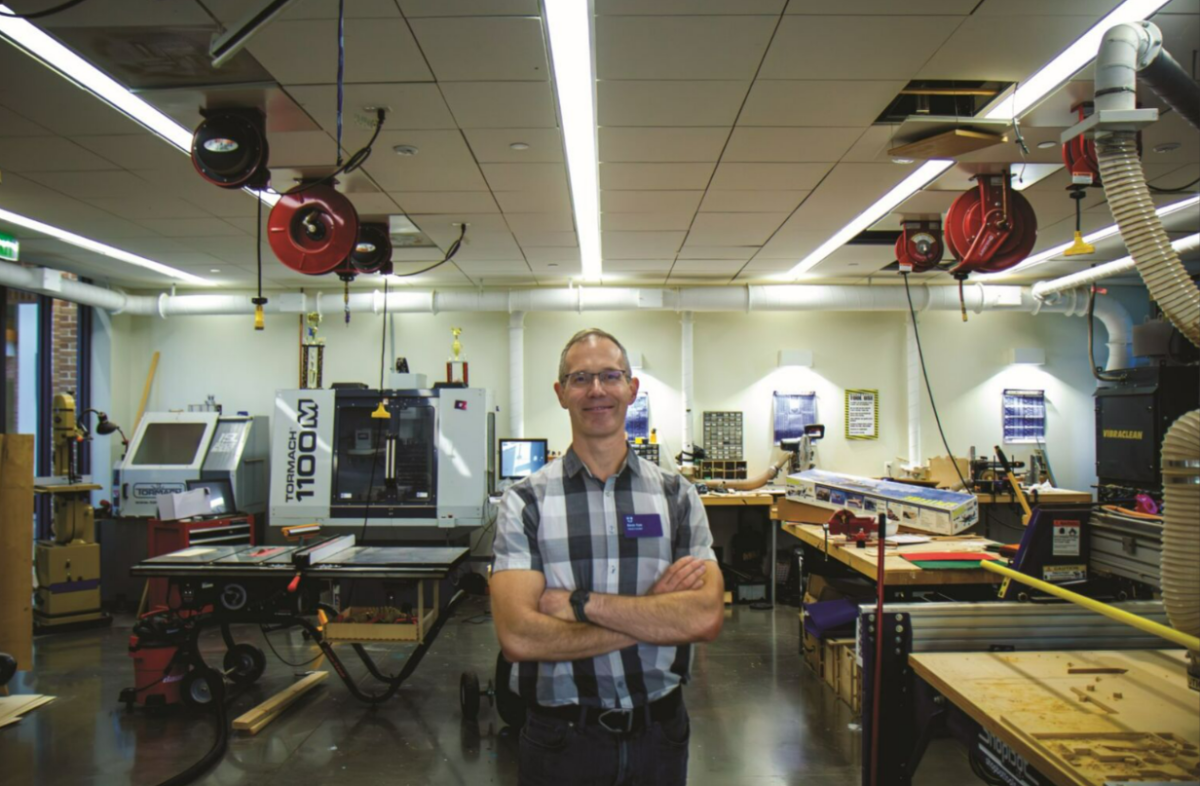Athletes are pushed to their limits during practices and games, and they require a certain level of nutrition and hydration to maximize performance. In the Texas heat, temperatures frequently reach upwards of 100 degrees Fahrenheit, causing athletes to sweat more and burn more calories.
Maintaining a high level of athletic performance requires strict preparation. Like most young athletes, junior rower Ian McGowan relies heavily on the support from his parents. Because McGowan is the sibling to two Division I collegiate athletes – his older brother Evan McGowan‘22 and older sister Abby Grace McGowan – the whole family understands the importance of a healthy diet.
“I think about what he’s got coming up and going on and try to make it a protein heavy meal,” Dana McGowan, Ian’s mother, said. “But if I know he’s got a piece (rowing workout) coming up, then I’ll try to make it so he has an equal balance of carbs and protein.”
While nutrition remains important, it does not remove the necessity of proper hydration. Texas athletes can experience heat stroke, heat exhaustion and muscle cramping, leaving some physically unable to perform. Even a small amount of dehydration can affect an athlete’s physical abilities.
“A one to two percent dehydration will result in a significant decrease in performance,” licensed dietician Meridan Zerner said. “Being underfueled, meaning not enough total calories and certainly not enough carbohydrate energy, (leads to athletes) typically not being able to go as long as they might be able to go at (their regular) level of intensity.”
Head Athletic Trainer Matt Hjerstedt and Zerner agree that tracking hydration levels are extremely important. They are also easy to track by simply checking the color of one’s urine or weight before and after activity. Like hydration, many experts recommend also tracking caloric or macronutrient intake, yet many athletes do not.
“I don’t track my calories like specifically counting them,” Ian McGowan said. “I try to make sure I’m in a general area in calories where I know I’m not in a significant deficit (or at all), but I do track my protein, and, if anything, I’m overdoing it with carbs.”
Supplementing performance enhancers like creatine and beta alanine has helped Ian McGowan with his sport. Using electrolyte additives like Nuun and Vitamin Water have also helped him.
Sports drinks can help provide the necessary electrolyte levels to help an athlete maintain enough water. Sports drinks are specifically designed to have the correct ratio of electrolytes (mainly sodium and potassium) to keep one’s blood sugar and energy high, proving useful for optimal athletic performance.
“Sports drinks can be good if they’re used appropriately (for) activities that last longer than two hours,” Hjerstedt said. “It’s providing sugar for energy, and then it’s providing some of those electrolytes…if you are taking in salt, it’ll help you retain more water.
On the other hand, caffeine ingestion negatively affects an athlete’s hydration levels, causing them to pee more.
“Caffeine infusion is going to have the opposite effect (of sports drinks),” Zerner said. “It’s not going to help with performance at all.”
While each athlete requires different amounts of energy, based on their height, age, weight, sport and position, each athlete will need the right balance of macronutrients, carbohydrates, proteins and fats.
“We have to get the right amount of energy going in, and that’s going to be based on age, height, weight, gender, what sport they’re playing, what position they’re playing in that sport,” Zerner said. “Then, we look at the breakout of the energy.”
The impact of quality meals goes beyond just health for the McGowan family. They stress the importance of eating together, whether that’s with their family or friends, and their involvement in community service reinforces this idea.
“For people who are homebound or seniors who can’t get out it’s two things: isolation and not having access to healthy food,” Dana McGowan said. “If you don’t have access to healthy food, that creates other issues in your life like diabetes, depression and all sorts of things that can result from not having adequate nutrition. I feel like we do something good by taking those meals to these people, (getting) to know a lot of them, and they’re just awesome and grateful. Sometimes we might be the only face they see that day, and being able to spend a minute with them as we deliver their meal is really important. It’s almost like creating a little bit of a dinner table for them.”
Proper nutrition powers performance
September 27, 2024
Categories:
Sophomore Andrew Hofmann picks out a drink after practice for electrolyte recovery.
More to Discover
About the Contributors
Christian Warner, Print Editor-in-Chief
Holden Purvis, Issues Editor








